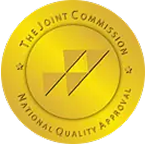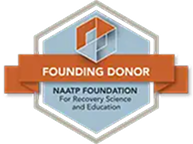The Importance of Not Staying Silent in Recovery
The words treatment, rehab, addiction, and addict pack a powerful punch – sometimes so powerful we feel as though they are taboo or should not be mentioned.
Whether we are the ones seeking treatment, or are family of a loved one needing treatment, the notion of sharing and discussing the topic of addiction is often silenced. Whether due to social tab oos, shame or guilt of not being able to help an addict, or the fear of failure and relapse, there are a multitude of reasons one may stay silent either as an addict or as the addict’s support system.
oos, shame or guilt of not being able to help an addict, or the fear of failure and relapse, there are a multitude of reasons one may stay silent either as an addict or as the addict’s support system.
Staying Silent – The Addict’s Perspective
As an addict, silence can be one of the reasons we found ourselves on this path to begin with. Silence may be a part of our personality, certainly, but it may also be a coping mechanism that has prevented us from properly expressing and confronting emotions and feelings. We push the feelings down and replace them with substances to extinguish them. Silence compounds the issue, leaving us feeling isolated and alone.
Further, silence is detrimental to considering treatment as an option, especially because we have no one to support them. The process of choosing and entering treatment is something to be discussed, shared with others, and evaluated. Silence can cripple us and often keep us from entering a program. Why do we keep quiet when we know we need help? Perhaps we fear we won’t be supported. Perhaps we’ve disappointed so many times we hesitate to even try again. Perhaps we doubt ourselves, and therefore can’t accept anyone else will believe in us.
Staying silent can also be detrimental to us in recovery, when it is absolutely crucial to be open and honest. Treatment programs are designed to peel away the layers that have shrouded the addict and drowned us in emotional, social, and sometimes physical scars. By opening up – something very new for those in treatment — and sharing sometimes uncomfortable thoughts and feelings, we receive feedback from our support systems that we can implement outside of the program. This feedback is a crucial building block of recovery.
Lastly, silence can be destructive after treatment when we don’t know how to ask for help, even when we realize we need it. The path to recovery can be a lonely one – if we choose – especially if we have become used to not sharing. The complexities of addicted life are ongoing. Leaving treatment does not mean we can again become silent, going back to not sharing our journey, not sharing that we are sober. Being open about where we have been and proud of the work it took to rebuild not only changes us and moves us forward, but can begin to rebuild the relationships that crumbled under the weight of our past choices and behaviors. Support groups and aftercare programs, meetings and sponsors are all in place for a reason – so that we no longer have to live alone in silence.
Staying Silent – The Family Perspective
In addition to the addict, silence can harm their families and loved ones. It is common that an entire family will know or at least believe that a family member is addicted to substances of abuse. They will enable, excuse, and cover-up the addictive behaviors, thinking that somehow this approach normalizes the family relationship, or worse – convinces them the addiction is not real.
Further complicating the problem of staying silent is the guilt and pain caused when the family does not intervene as they see their loved one take the path of self-destruction. While not all addicts are willing to enter a treatment program, they’re secretly suffering in silence, needing the encouragement and understanding from someone willing to support them in taking that first step.
Silence — keeping your privacy and acting as if there’s no problem at all — may seem like an avenue of self-preservation. However, in reality, it can intensify addictive behavior and lead to relapse. Silence does not allow for accountability or responsibility. By opening up and speaking up, allowing others to support you, and asking for help, one begins to break down the walls and continue strong on the road to recovery.
***
For more information, resources, and encouragement, “like” the Fellowship Hall Facebook page and follow us on Instagram at @FellowshipHallNC.
About Fellowship Hall
For 50 years, Fellowship Hall has been saving lives. We are a 99-bed, private, not-for-profit alcohol and drug treatment center located on 120 tranquil acres in Greensboro, N.C. We provide treatment and evidence-based programs built upon the Twelve-Step model of recovery. We have been accredited by The Joint Commission since 1974 as a specialty hospital and are a member of the National Association of Addiction Treatment Providers. We are committed to providing exceptional, compassionate care to every individual we serve.






